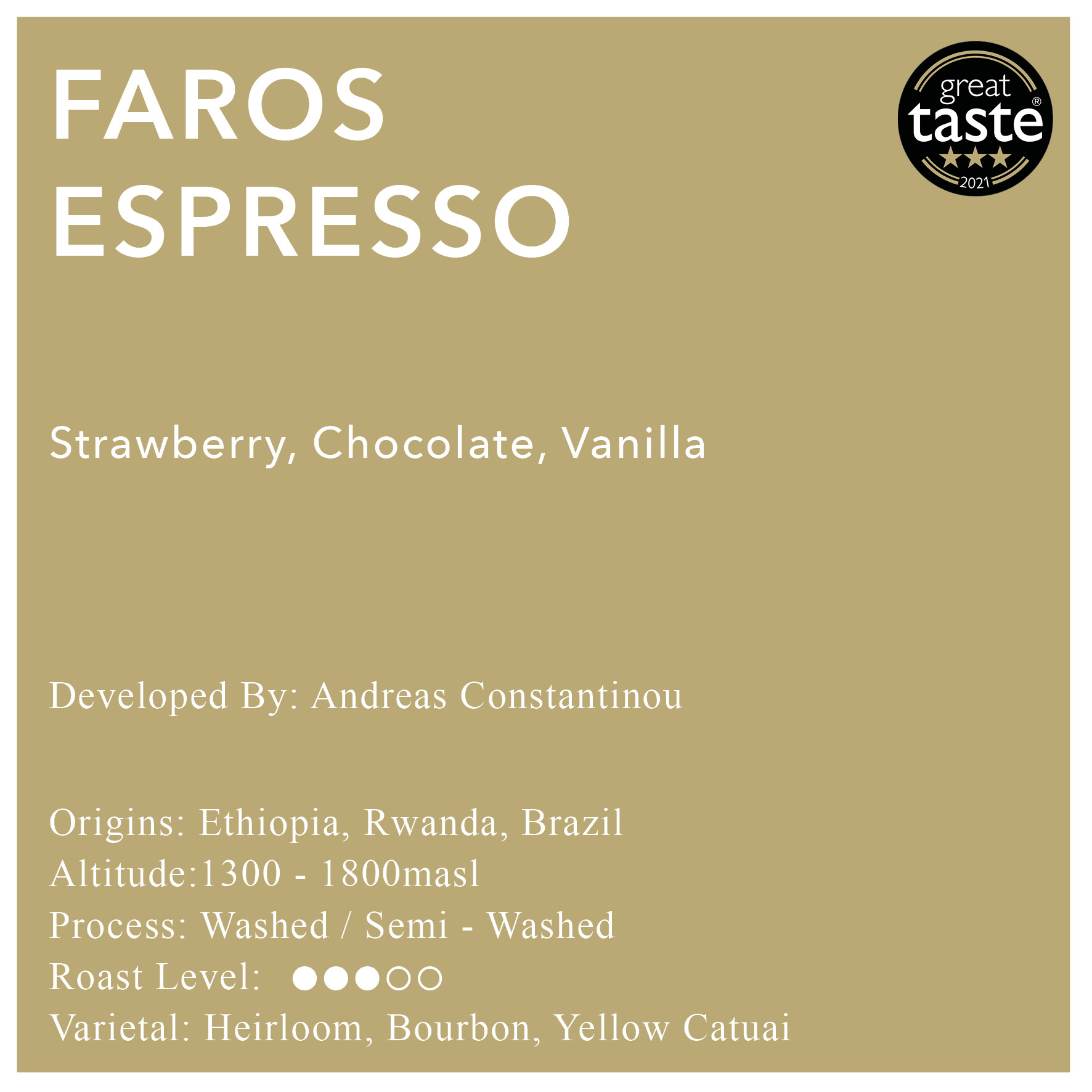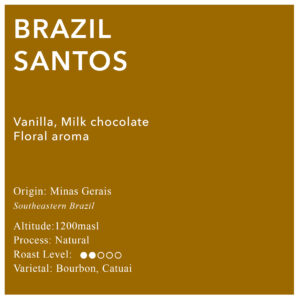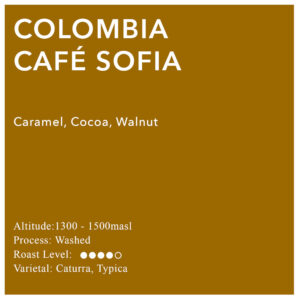Flavour Notes
Recommended Brewing Method
Country
Process
Varietal
Region
Elevation
It’s a winner! 3 Star Great Taste Award 2021.
Faros Espresso takes 3 of our Single Plantation coffees from: Rwanda (2 Star Great Taste Award 2020), Brazil and Ethiopia. This blend is complex, smooth and crisp. It speaks not only to the Adams + Russell brand, but the important people behind it.
ABOUT:
Brazil Mantiqueira De Minas
This coffee is Fairtrade certified and is grown by multiple smallholders. Mantiqueira de Minas coffees are sweet with a mild citrus acidity. They achieve a minimum SCA Cup score of 83, guaranteeing a product with quality, integrity and unique characteristic.
Rwanda Kinini AA
2 Star Great Taste Award winner 2020.
Grown in the Rulindo region and then taken to the Kinini washing station for processing, which over 660 neighbouring farmers also use. To ensure the superior quality and freshness is maintained, the days picking is delivered to the washing station by 4pm the same day. The beans are then carefully sorted and processed, they are marked at every stage of the process to ensure Microlot traceability.
10% of the funds Kinini receive for the sale of their coffee go towards supporting their local health centre and school.
Ethiopia Sidamo
Sidamo is a large growing region in South Ethiopia with immense variations in climate and topography. This creates the ideal conditions for coffee growing, yielding the winey and bright mouth feel Ethiopian coffees are best known for. Arabica matures more slowly at a high elevation, the nutrients are absorbed over a longer period of time allowing complex and nuanced flavours to develop fully. Our Ethiopian Sidamo has incredible heritage. The reputation for high grown and high quality washed coffee is well deserved. Both factors impart individual delicate, tea like flavours onto the bean.
PROCESSING METHODS:
Ethiopia Sidamo: Washed
The most popular way of processing coffee. The fruit flesh is mechanically removed with a machine known as a depulper, the beans are then put into a water tank to ferment. The amount of time it takes to ferment depends on climate factors such as altitude and temperature. In hotter regions the fermentation will be quicker, and vice versa. Generally, the process typically takes between 24 – 72 hours. Once complete, the coffee beans are then dried on patios or raised beds.
Flavour profile: Light body, retains the citrus and floral flavours.
Rwanda Kinini & Brazil Tres Meninas: Natural
After the coffee cherries are picked from the trees they are laid out to dry in the sun. Drying stations vary depending on region; some use brick patios and others use raised beds which enable air to flow around the cherries and dry them quicker. To avoid mould, rotting or further fermentation the cherries are turned regularly. Once the cherries are dried, the skin and fruit flesh is mechanically removed and the green beans are stored before exportation.
Flavour profile: Sweet, less acidic, rich body.
RELATED PRODUCTS
Related products
-
India Tiger Stripes
- £8.00 – £21.00
- Select options This product has multiple variants. The options may be chosen on the product page
-
Brazil Santos
- £8.00 – £21.00
- Select options This product has multiple variants. The options may be chosen on the product page
-
Colombia Cafe Sofia
- £8.00 – £21.00
- Select options This product has multiple variants. The options may be chosen on the product page






Reviews
There are no reviews yet.